Qaseedathul Burda: An Epitome of Prophetic "Panegyric poems"
Qaseeda Burda [also called as Qaseeda Bur’a and al kavakib al-duriyya fi madh-i-khairil bariyya] plays a sufficient role in praise poetries [Qaseeda]. It is said as Burda is the supreme poetry written about prophet ﷺ. As Dr.Zakkiy Mubarak said ‘Burda is the reason to unite world Muslim community to praise and love their prophet Muhammad ﷺ.
It emphasizes a pure infatuation to one who is the only reason for the world's creations. Because of his unique character, many of mankind landed to Islam’s seashore. That is the reason why mecca infidels who worshipped statues fell in an inextricable bond of companionship with him.
Imam Sharafudheen Busuri also shows his Ishq [love] and Mohabbat [affection] here. He dispenses a poetry which is being recited as a symbol of love until today. Which plays a leading role to Islamic beliefs also. And the aim of Islam is to have a hard belief in it. Praising and loving the prophet can fulfil this aim perfectly. So, Imam Busiri is one of the role models in it.
He delineated the prophet very sublimely. And managed his poem verses from being like one who made Isa [pbuh] as a son of god or as a god by extending in his praise. It is cluster clear from his poem:
فمبلغ العلم فيه أنه بشر٭ وأنه خیرخلق اللہ کلہم
That knowledge’s peak is that Muhamad is a human. Not a god or god’s son. But he is the emancipation of mankind and the best ever person in the world.
Prophet Muhammad ﷺ was also encouraged poets in his age. Like he heard up to hundred poems of Ummayath bin Abu-salth stated by a hadith reported by Amr bin shareed[r]. Hassan Bin Sabith was one of the prophet's poets. The Prophet prayed for him that: Allah will bless you with his Ruh-al quds. And gave him a shawl. Once prophet Muhammed ﷺ who will help me to win this Battle of Badr? Saad[r] replied: we are ready to tumble over the nautical sea for you. Then the prophet ﷺ asked that: I want one who can vanquish enemies with his tongue.
In another instance, the prophet said that: I love Labeed’s [a poet from Mecca] poetry. These histories proclaim that the prophet also hearted and be smitten with poetry and poets. Which is most apt to propagate Islam worldwide spiritually, socially and practically. As the prophet said to Caliph Umar [r] that: ‘oh Umar! Your belief is not completed until you love me more than every mankind in the world.’[Bukhari: 6257].
‘It emphasizes a pure infatuation to one who is the only reason for the world's creations. Because of his unique character, many of mankind landed to Islam’s seashore. That is the reason why mecca infidels who worshipped statues fell in an inextricable bond of companionship with him.’
‘Imam Sharfuddin Busiri also shows his Ishq [love] and Muhabbath [affection] here. He dispenses poetry which is being recited as a symbol of love until today.’
Imam Busiri [1213-1295]:
Imam Muhamad bin Saeed al-Busuri was born in Egypt in 1213/608. He was born in a tribe named as ‘Banu suvaif’ in ‘buseer’ or ‘dilas’ in another opinion. He was a very intelligent and befitted person to be a leader of his tribe. He travelled to Cairo and memorized the Quran in his childhood and studied from famous scholars like Abul Hasan Shaduli, Abul Abbas Mursi etc. At last he travelled to Alexandria and his leisure pursuit was to write prophetic love poems which were so perplexing one another. But he was not satisfied by it and started writing a new poem named ‘Burda’. Imam died in 694h/1295 at the age of 87.
Other Works: Qaseedathul Hamziyya, Qaseeda Muhammadiyya, Al- muzariya fi madhi khairil bariyya
First Burda:
Qaseeda Burda of imam busiri is famous for this name. But before his era, a poem of Kaab Bin Zuhair [one of the companions of the prophet] known as Burda. Before his embracement of Islam he presented his poems against Islam. Which made the prophet angry with him. But after embracing Islam he became one of the favourites. Then the prophet gave him his shawl. It is the reason why this poem is called burda [it is known as shawl in Arabic language].
Qaseeda Burda:
There are many opinions about the starting of Qaseeda burda among historians. Most of them agreed that the imam decided to write a prophetic poem which will be a masterpiece all over the world. Which can transmit day by day to all generations after him. But he is suffering from paralysis because he can't do anything with his body. Meanwhile, he started writing poems and reciting them. Prophet Muhammad ﷺ came in his dream and treated his paralysis and encouraged him to write complete his poem. [Al-madaihunnabaviyya fil adabil arabi: 196].
And also reported as after his dream with prophet ﷺ some people came to him and asked that: give us your poem. Which you wrote about Prophet Muhammad because yesterday night I saw someone reciting this poem in the prophet's presence.
Name burda means coldness or shall. Which shows that when he saw the prophet in his dream he gave him a shawl. Or when we recite this Qaseeda it will Colden our body from every hard situation. It is also known as Bur’a [treatment] in which his ill was treated by the prophet. And when Saaduddin Fariqi suffered from glaucoma strongly, he saw a person telling him to recite burda.Then Burda treated his glaucoma. [Umda fi sharahil Burda: 37].
‘And when Saaduddin Fariqi suffered from glaucoma strongly, he saw a person telling him to recite burda.Then Burda treated his glaucoma. [Umda fi sharahil Burda: 37].’
Structure of the poem:
It contains 169 or 167 verses which are most valuable. And also recited a verse named ‘maulaya….’ after every verse of burda. Which is believed as spiritual guidance. Qaseedathul burda includes ten special chapters. Firstly, the imam starts his poem with prophetic praise. Then, he gets upset by the errors did before in his life. And the middle chapters contain the prophet’s lifestyle: birth, Quran, isra’ wal-miraj, battles etc. finally, in the last chapter imam busiri describes prayer and seeking intercession[shafa’ath] from the prophet on the day of judgement.
The chapters of Qaseeda Burda are following:
Chapter 01: Nostalgic Rhapsody and Love Complaint.
Chapter 02: Warnings about the Caprices of the Ego.
Chapter 03: Praise of the Prophet .ﷺ
Chapter 04: Prophet's Birth.
Chapter 05: The Prophet's Miracles.
Chapter 06: The Nobility of the Qur’an and its Merit.
Chapter 07: The Prophet’s Miraculous Night Journey and Celestial Ascension [isra’ and mi’raaj].
Chapter 08: The Prophet’s Jihad.
Chapter 09: Seeking Intercession through the Prophet ﷺ.
Chapter 10: Intimate Discourse and the Petition of Needs.
Main Commentaries of Burda:
- Umda fi sharahil burda: ibnu hajar al haithami.
- “Zubda” shaikh badruddin[muhammed ibn muhammed al-gazi].d984.
- Commentary of shaikh muhyuddin [muhammed ibn Mustafa] d951.
- Irthishafu-shuhda fi sharahi qaseedathil burda: qasi bahr ibn raees ibn harooni al-makki.
- Commentary of maula ubaidullah muhammed ibn ya'qub al-fanari.d936.
- Commentary of sharafuddin ali al-yazdi.d828.
- Nuzhathu-thalibeen,thuhafathul ragibeen: Ahmad al-mur’ishi.
- Vashiyyul burda: zainuddeeen al-muzaffar.d808.
- Isthiyaab Lima fiha minal-bayani val-I’raab, izharu sidqil-muvadath: abu abdillah al-thilmasaani .d781.
And there are hundreds of commentaries written on qaseeda burda. Which shows the influence of this masterpiece poetry through over many generations. It’s been a tradition to recite Qaseeda Burda every Thursday night, especially in the month of Rabee’ul Awwal [in which the prophet was born and died].
‘And there are hundreds of commentaries written on qaseeda burda. Which shows the influence of this masterpiece poetry through over many generations. It’s been a tradition to recite Qaseeda Burda every Thursday night, especially in the month of Rabee’ul Awwal.’
Conclusion:
Qaseedathul burda had played a pivotal role in panegyric poems of prophet muhammed {pbuh}.It changed a common style of praising poems to a more spiritual one. where the life of the prophet is totally involved. That is the only reason why until today Qaseedathul burda has a stand where no other panegyric poem can equalise it.
References:
- Hamsa, C. "Qaseeda Burda Malayala Bashyavum Aaswadanavum."
- Al-Haithami, Ibnu Hajar. Umda Fi Sharhil Burda.
- Al-Aafandi, Sayyid Umar. "Qaseeda Burda Maa’ Sharahi Aseedathul-Shuhada."
- Al-Thilmasani, Abu Abdillah. Isthiyaab Lima Fiha Minal-Bayani Val-I’raab.
About the author
Swalahuddeen Kodagu, Degree scholar in Department of fiqh and usul fiqh, Darul Huda Islamic University , Chemmad, Malappuram).
Disclaimer
The views expressed in this article are the author’s own and do not necessarily mirror Islamonweb’s editorial stance.

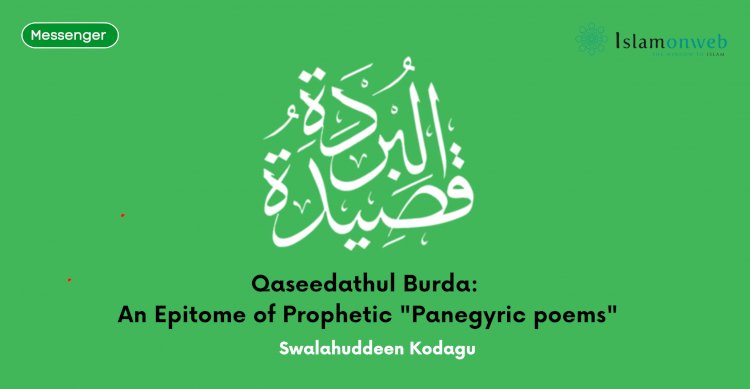


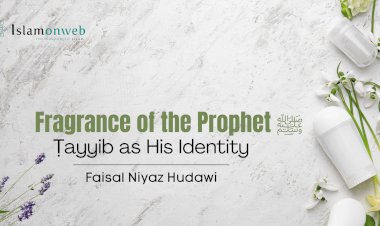
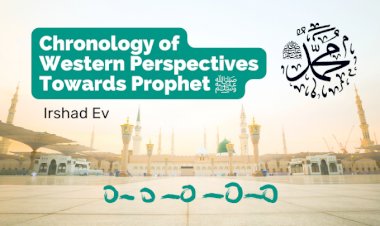
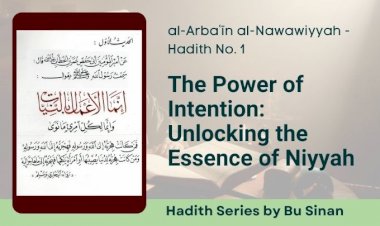
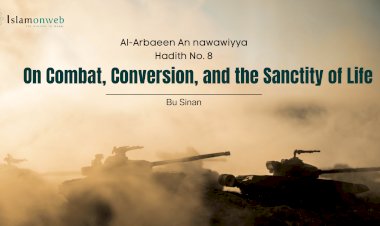
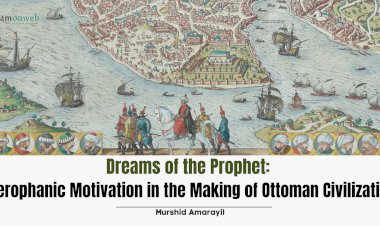
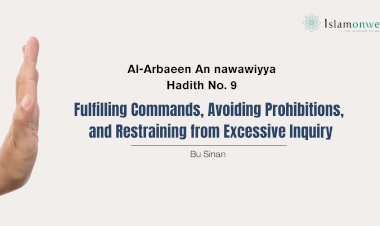














Leave A Comment